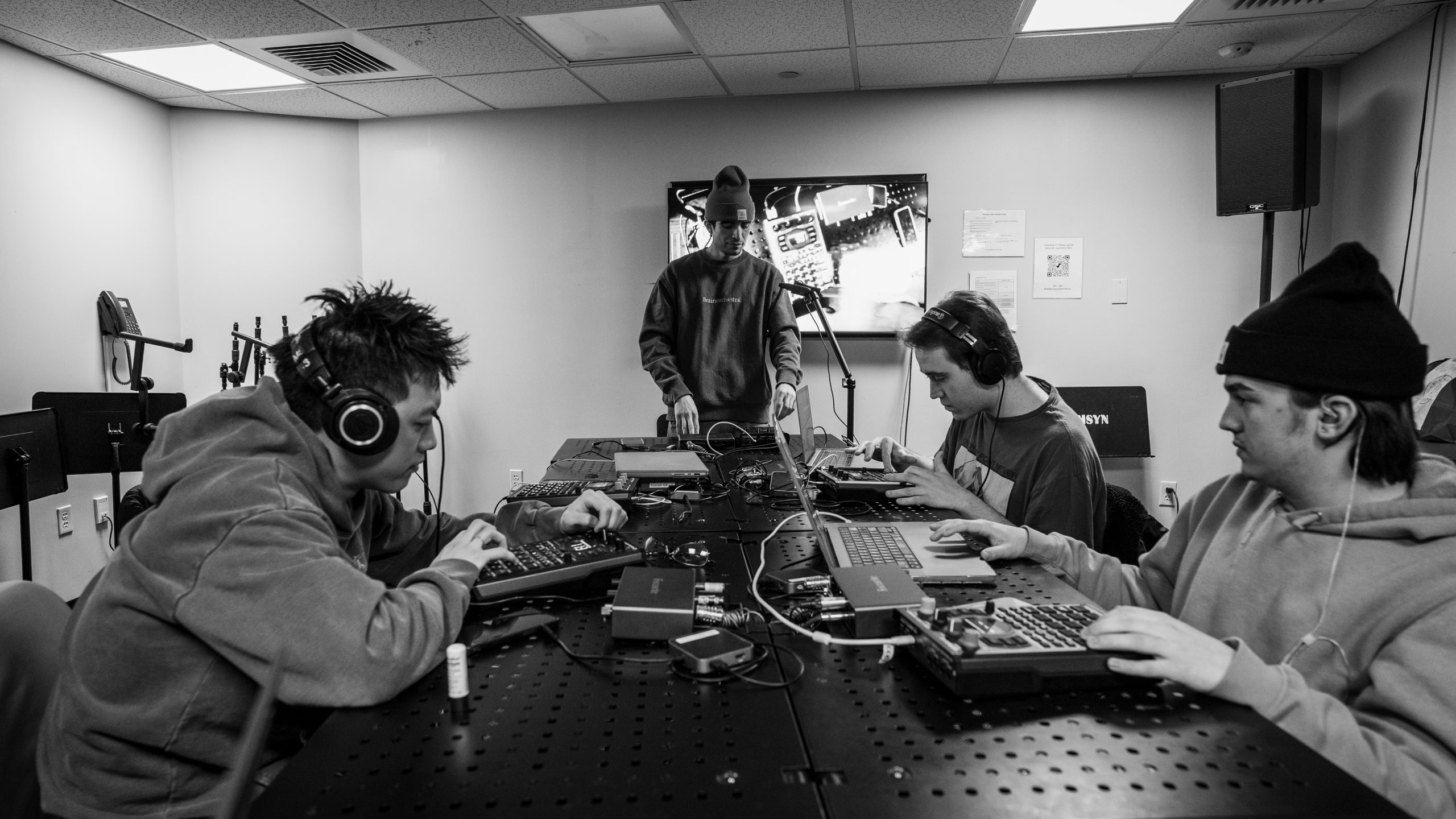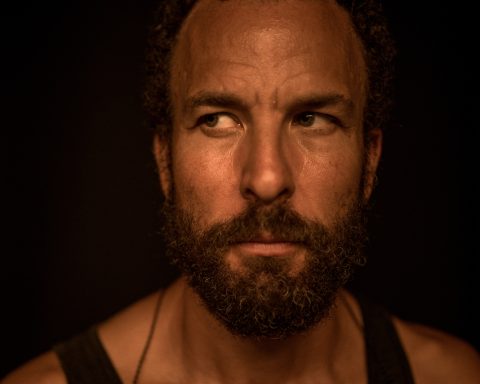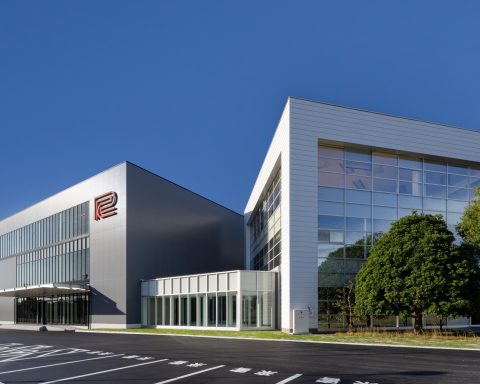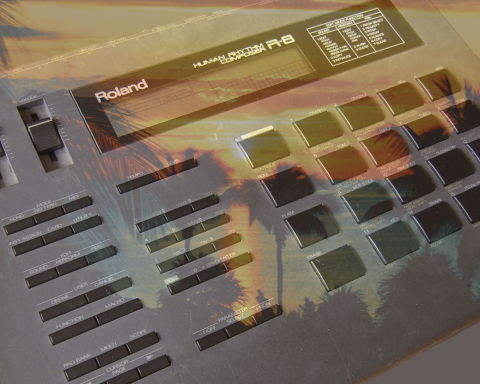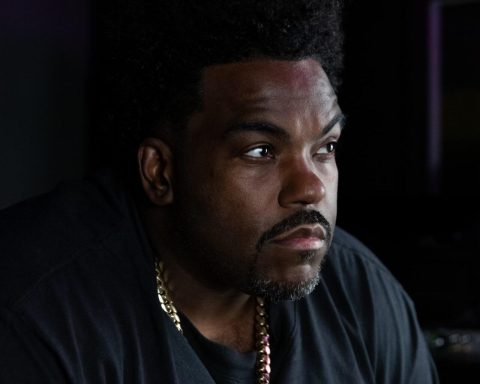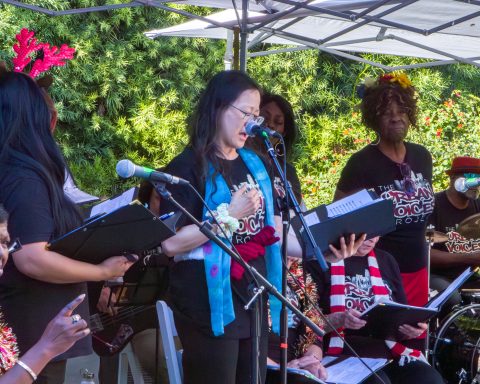Music education—like the art form itself—is constantly in flux, adapting and growing to reach new generations of learners. For over 80 years, Berklee College of Music has reigned as the world’s largest independent college of contemporary music. In that time, genres have come and gone and come around again, while music technology has seen countless innovations. In 2025, the school debuted Sampling for Music Production and Performance, a course teaching essential SP-404MKII skills “including sampling, looping, and applying effects, through hands-on instruction and guided practice.” Evidenced by like-minded offerings like the Electronic Music Education program at Detroit School of Arts and the Sample Mode course at UC Berkeley popping up, institutions are expanding the standing of electronic music in academia.
Jamaica Plains-based instructor and artist David Bellow, aka Lightfoot, is a highly respected figure in the lo-fi community, producing countless beats, videos, and records. He and Michele Darling, Chair of Electronic Production and Design, explain the process of designing and implementing this groundbreaking new offering and how the class is making a powerful impact on students.
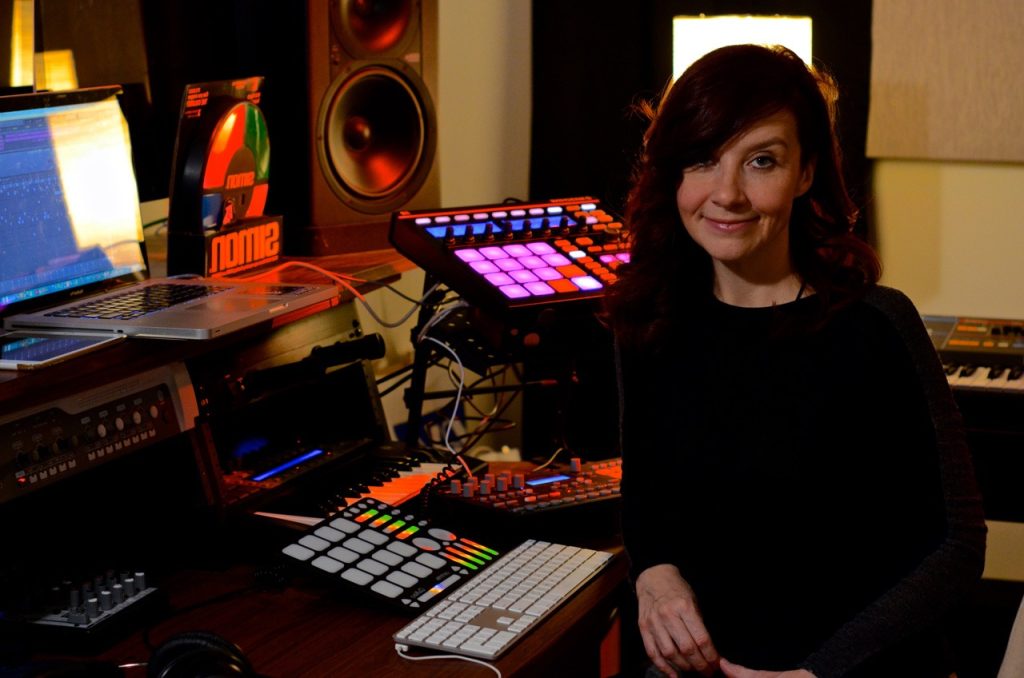
Two Educators—One Vision
Both Bellow and Darling are lifelong electronic music aficionados, albeit from different backgrounds. “I’ve been an electronic musician and professional sound designer for years,” Darling says via a shared Zoom call with Bellow. She goes on to share how she pivoted and became a professor. “I found I loved moving education forward in music.”
To some degree, frustration inspired her passion. “I was a classical flutist who started to DJ, and I couldn’t connect my musical education with what I was experiencing out in the world.” Correcting for that schism is now her north star as an administrator. For Darling, this work makes her ask some fundamental questions about students: “What’s going to light them up with their passion, and then how are they going to make a living?”
For his part, Bellow has been on the beat trail since middle school. “I was working with basic software, like FruityLoops 2, creating with my friends,” he recalls. “Eventually, that led to me having enough interest to go to this vocational program, where I completed a year of intensive audio engineering education.”
"Berklee is embracing the electronic musician and DJ more and carving out more space for them."
Michele Darling
While pursuing his career as an artist, Bellow concurrently established himself as an educator. Spending over a decade teaching workshops and managing a youth program primed Bellow for a life-changing opportunity via his friend Jesse Hanson, aka Bad Snacks. “She was a faculty member at Berklee and went on to go do what a young artist should do: go on tour and all that stuff,” he says. “She was like, ‘I have this position at Berklee. I think you’d be a good fit for it.'”
His awareness of the storied institution was a given. “I’ve driven by Berklee so many times since I live in Boston,” Bellow says. “I went through these interview processes and ended up finding a place as an assistant professor with Michele as my leadership.”
Darling expands on this unique part of the school’s music programming. “The name of the department that I chair and where David is faculty is called EPD or Electronic Production and Design,” she explains. “We offer a major called EPD, which results in an B.M. degree. The major is for electronic music producers, sound designers, sound for video games and immersive environments, new musical instrument performance, and product design.”
Berklee also offers an B.M. in Electronic Digital Instrument (EDI) Performance and a minor in Electronic Performance, programs that align well with the type of student attuned to the SP-404 and beat culture.
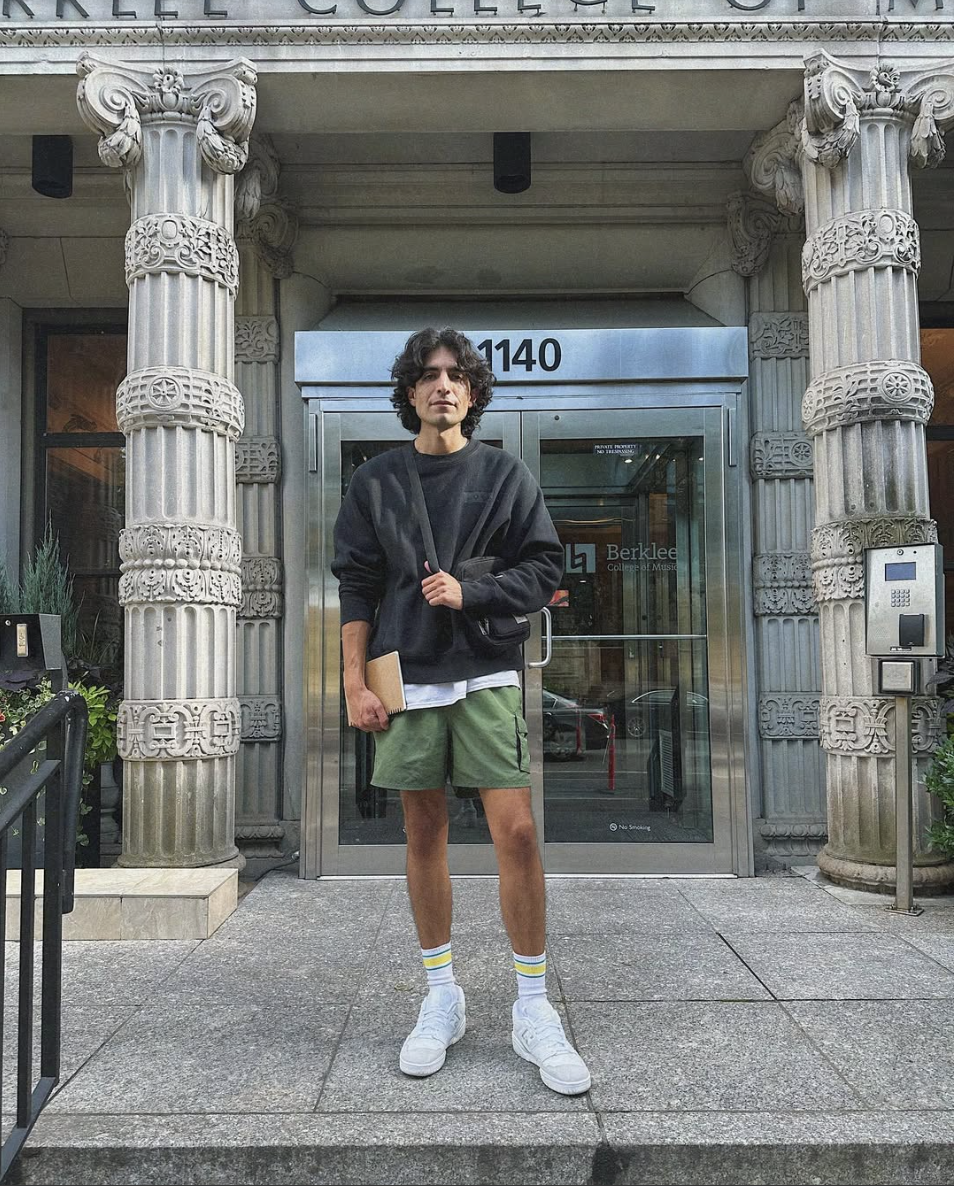
"I've driven by Berklee so many times since I live in Boston. I went through these interview processes and ended up finding a place as an assistant professor."
David Bellow aka Lightfoot
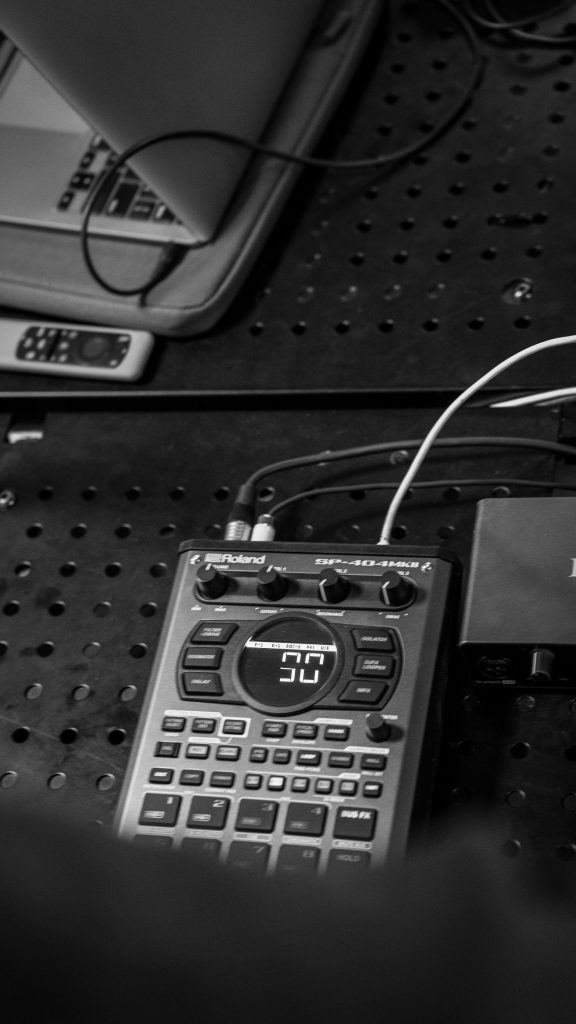
The Path to the First 404 Class
Darling believes this as an exciting time for the institution. “Berklee is embracing the electronic musician and DJ and carving out more space for them,” she says. “We have PhDs and sound designers, sampling artists like David, and product designers making the newest software in the music tech industry.”
In the forward-thinking Berklee environment, the SP-404 was already on Darling’s radar. In a department focused on new technologies and ways of playing new musical instruments, we’re always looking for the trends,” she says. “Bad Snacks and faculty members Daedelus and Mike Parvizi were using the 404. I saw David and Mike play the 404 at the faculty concert, and I thought, ‘What can we do with this, and where does it fit?'”
Even in a program that teaches DAW-based workflows, synthesis, and niche electronic techniques, the 404 class represented a new frontier. “I’m not saying even the sampling artist is new, but it’s been somewhat new to Berklee as far as teaching,” Darling says, noting the challenge of integrating the SP-404. “So, how do you write curriculum around this instrument that allows students to explore their creativity and artistic expression through it?”
In 2024, Bellow taught the EPD Electronic Music Production and Sound Design week-long summer program that served as a pilot for the new course, an environment to try the concept out. It was an immediate hit. “Our summer program of around 200 students is really vibrant,” affirms Darling.
From there, it was a matter of creating a solid academic framework around the SP-404. Darling explains: “We took the fall to ask, ‘What is a 15-week course? What are the learning outcomes? What are the midterms and finals of the performances?'”
"How do you write curriculum around this instrument that allows students to explore their creativity and artistic expression through it?"
Michele Darling
Organically, Bellow had a connection to the Roland development team behind the SP-404MKII. “My friend Dibiase is an incredible producer out in LA who was one of the artists Roland was talking to when the MKII was being developed,” he says. “He hit me up about test-running this hardware.”
Through Dibiase, Bellow met Matt Chicoine, aka Recloose, a Roland product manager and longstanding artist as well as lead engineer Takeo Shirato. “We just kept working through the MKII iterations and stayed in touch.”
Bellow and Chicoine often discussed educational opportunities utilizing the 404, but once in his new position at Berklee, the project snowballed. “Michele and Matt did their own thing and pushed the ball on that,” he says. “There were a lot of conversations with people at Berklee, making sure there was enough space and enough time.”
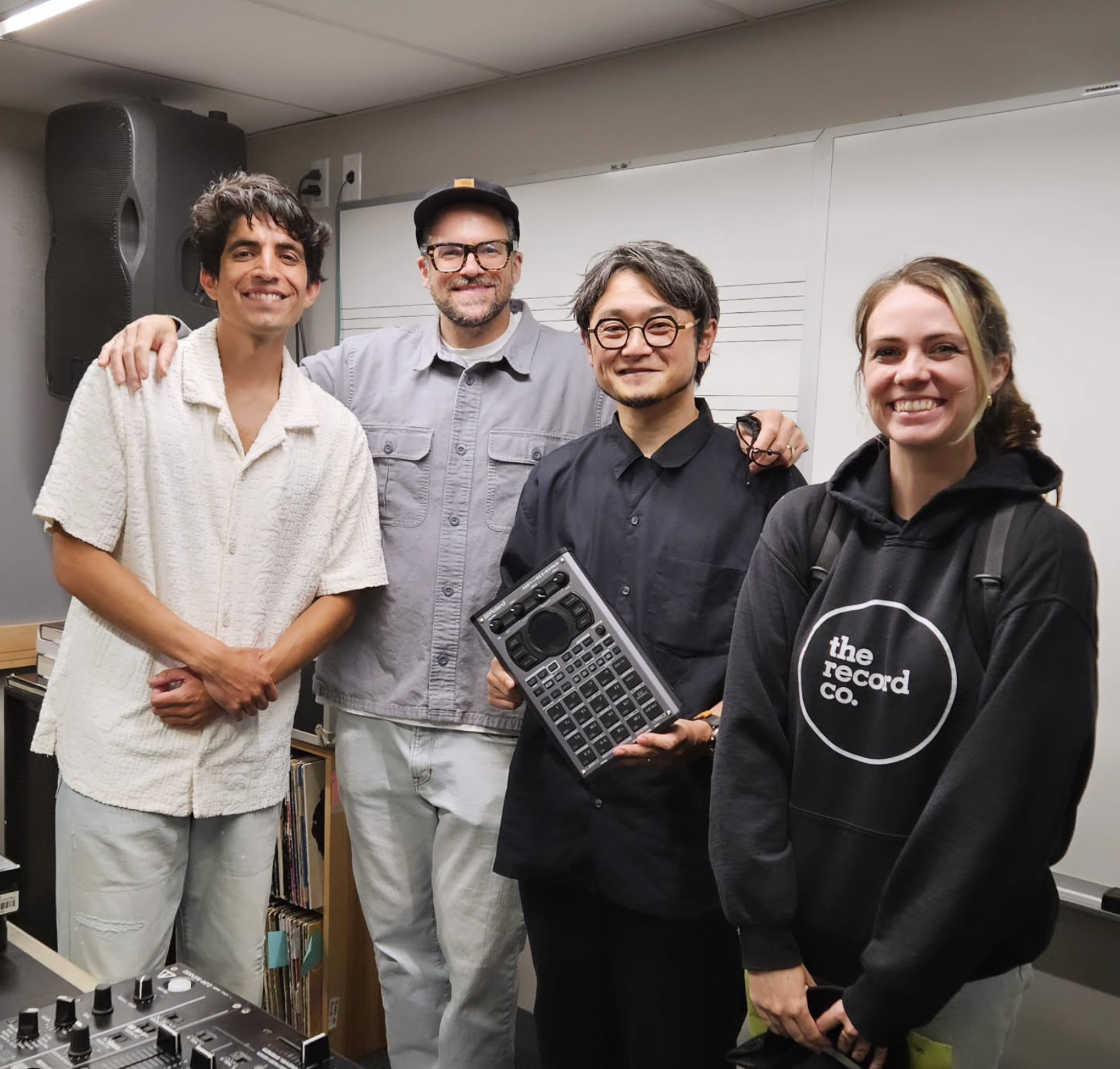
"It's like I'd imagine in a guitar lab or another kind of instrument where everyone's jamming with one another. But you have an additional language."
David Bellow aka Lightfoot
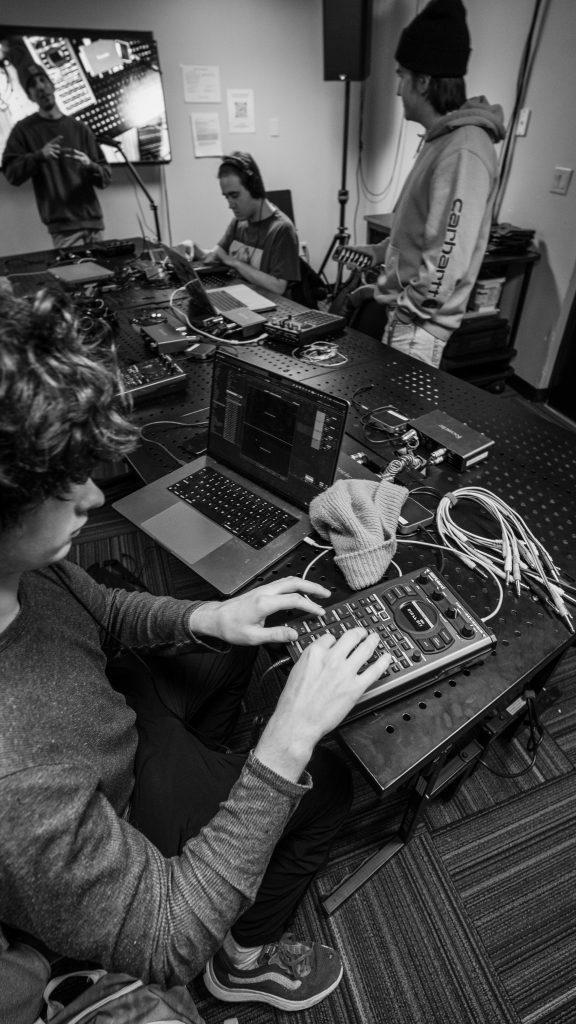
In the Classroom
The class debuted in the spring of 2025 and immediately filled up. With a roomful of SP-404MKII units supplied by Roland and a batch of beat-hungry students, the setting exemplifies Berklee’s intensive workshop style. “It’s like I’d imagine in a guitar lab or another kind of instrument where everyone’s jamming with one another,” Bellow explains. “But you have an additional language.”
During a typical class, Bellow will give instruction and then let the students create on their own, reconvening at the end to share the results. “I’ll drop a little gem, and then they just want to start cooking again,” he says. “To me, that’s the best.”
The SP-404’s flexibility creates a freewheeling environment in which Bellow encourages new approaches and ways of thinking. “It’s been fascinating to break this machine down because it’s so specific and adaptable to how everybody creates.”
In fact, students who Bellow knows from other classes are flourishing even more in the lab, surpising him with their progress. “There is a tremendous amount of enthusiasm,” he shares. “I see a different side of them as they interact with this hardware.”
While Bellow’s style informs his personal musical aesthetic, he wants the students to create their own paradigms. “I’m always bringing a boom bap sampling hip-hop kind of thing,” he says, “but they light up and go, ‘Oh, I know how I can get my fingerprint on this.'”
"There is a tremendous amount of enthusiasm. I see a different side of them as they interact with this hardware."
David Bellow aka Lightfoot
A Student’s Story
One Berklee student with a visceral experience in Sampling for Music Production and Performance is Mars Milton, an Argentinian guitarist and budding producer. When the college announced the course, he was first in line. “I just about freaked out,” he recalls, speaking from Miami, where he is on spring break. “You could count the milliseconds from the time I saw there were a few seats. I immediately signed up.”
As he speaks, Milton casually lifts his SP-404MKII into the frame. “It was awesome because I’ve been aware of David Lightfoot as a producer since before he even taught at Berklee,” he says. “He’s one of those heavyweights—one of the real sampling and technology-driven artists.”
Bellow’s classroom style is an excellent fit for Milton. “We’ve been taking different approaches to breaking down workflows, different things that can become part of your tool shed,” he says. “What I love about Lightfoot is he doesn’t tell you how to do it. He gives you the tools and says, ‘Time to cook up.'”
A mover and shaker with ample energy, Milton has a bi-weekly residency at Wally’s Jazz Club. “It’s the oldest jazz club in Boston,” he effuses, “continuously run and Black-owned, which is fantastic.” Illustrating the new generation of Berklee students and their multi-disciplinary, no-boundaries approach, Milton relishes the loose vibe of his residency.
“I put different configurations of like Berklee’s top musicians, and we lock in, get funky, get groovy.” The style is always rhythm-focused, and Milton uses diverse musical tools onstage. “I play guitar, but I have brought synths and the SP.”
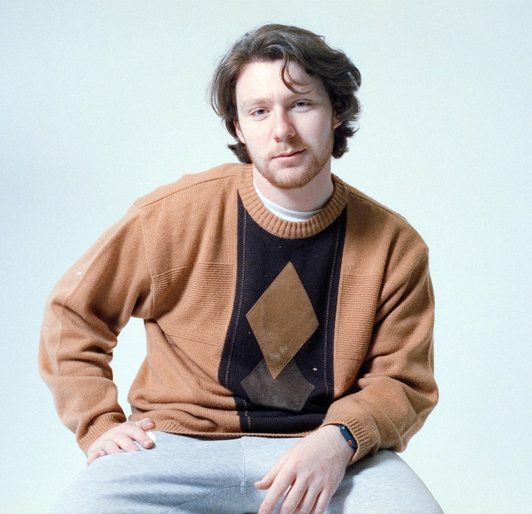
"I was holding back tears just from how historic and monumental it was to be sitting in a class for the SP-404. It's been super emotional."
Mars Milton
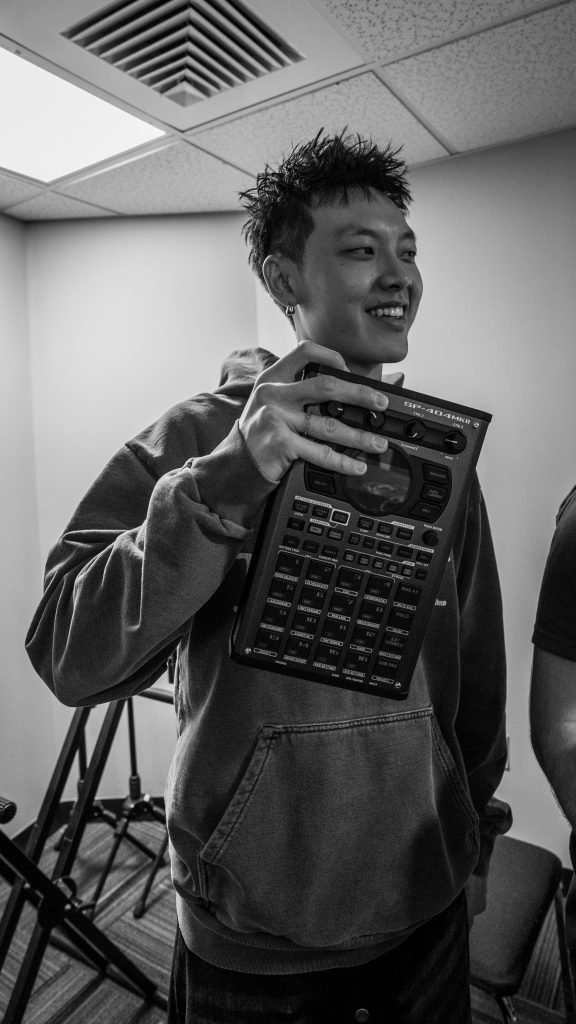
Engagement and Outcomes
While Milton is fusing styles onstage, Bellow sees his class growing in its ability to navigate between DAW-based workflows and the spontaneity of the SP-404. “It’s easy to adapt and become part of the larger ecosystem,” he says of hardware-based music creation. “It gives you a different feeling when you’re performing. I think that’s what my students are seeing in the 404 class.”
Darling credits some of this energy to the end of the pandemic and a shift towards real-world interaction. “I think we’re trying to engage with each other again,” she says. “What are you doing with your community to make music, share music, and inspire each other? This instrument is at the center.”
A natural mentor, Bellow believes his role as an instructor is to elevate the next batch of creatives. “My job is never to discourage, it’s always to encourage,” he says. “If you have questions about being a real artist, this is also a space for that.”
The 404 class provides a springboard for broader discussions about life as an independent artist. “As much as it’s a space to be me instructing how to use this tool, it always goes beyond that. Where I’ve been and what I’ve done also informs what I’m teaching and how I’m teaching it.”
For Milton, the whole experience is nothing short of life changing. “I was holding back tears just from how historic and monumental it was to be sitting in a class for the SP-404,” he says. “It’s been super emotional, to be honest.”
